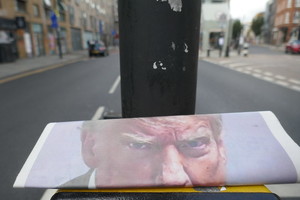Breitbart: Right-wing Publication or Fake News?

Fake news. Propaganda. Alt-right. Breitbart. Which of these doesn’t belong?
Some would say they’re all fair game. In many circles, the conservative news outlet epitomizes malicious misinformation. Others revere it as a crusader for truth, willing to throw political correctness away with reckless abandon. The jury is still out on which, if either, is correct.
It’s a question that annoys, vexes, and infuriates people of both partisan persuasions. In mid-May, The Washington Post broke a story asserting that President Trump leaked highly classified information to the Russians, exciting a slew of polarized reactions from the media. We covered it from all sides and received sharp backlash – not because Trump’s leak elicited disagreement across the aisle, but because we used Breitbart to represent the Right.
“DEEP STATE LEAKS HIGHLY CLASSIFIED INFO TO WASHINGTON POST TO SMEAR PRESIDENT TRUMP,” the headline read.
Criticism from our readers came quickly, with several lampooning the choice to put The Washington Post, seen by some as a more credible source, next to Breitbart – a false equivalence of sorts. Others took it a step further, questioning if the publication should be considered a news source at all. A few even branded it as Nazi-esque.
But, ironically, Breitbart’s article wasn’t “fake news.” That term only applies to stories that fabricate the facts, where the news itself is completely falsified (think Pizzagate). Breitbart claimed U.S. officials revealed classified information to the Post in describing Trump’s meeting with Russia, which is factually correct. They concluded that it must have been an attempt to smear the president – certainly a case of spin, but not an example of fake news.
So where does that leave us? Some readers suggested we keep Breitbart in our toolbox, but only when comparing it with a similar extreme of liberal bias – perhaps a Daily Kos or Mother Jones article, for instance. A handful implored we ditch them entirely.
While many of the “fake news!” accusations hurled at Breitbart are erroneous, they certainly seem to have lost a great deal of trust. With a penchant for colorful rhetoric, the far-Right outlet has earned a reputation as more of an agitator than a beacon of journalistic integrity – a provocateur of sorts. But even still, they represent a faction of Americans who are fed up with the mainstream media, a sentiment shared by many who put Donald Trump in office. Should we silence those voices?

April 29th, 2024

April 29th, 2024

April 26th, 2024

April 25th, 2024